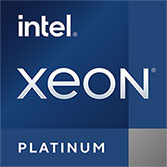 Alle Bestellungen werden in Deutschland gefertigt, versandt und unterstützt
Alle Bestellungen werden in Deutschland gefertigt, versandt und unterstützt

 Alle Bestellungen werden in Deutschland gefertigt, versandt und unterstützt
Alle Bestellungen werden in Deutschland gefertigt, versandt und unterstützt

Dual Intel 10GbE Network ports, 2x PCIe x16 Gen3 slots, Intel Server Management port - IPMI 2.0 & Redfish, optional redundant power supply.
3rd Generation Xeon Scalable Processor, PCIe Gen4, Intel Server management port - IPMI 2.0 & Redfish, optional redundant power supply
Dual Intel 10GbE Network ports, optional redundant power supply, Intel Server management port - IPMI 2.0 & Redfish
3rd Generation Xeon Scalable Processor, PCIe Gen4, Intel Server management port - IPMI 2.0 & Redfish, optional redundant power supply
Dual Intel 10GbE network ports, optional redundant power supply, Intel Server management port - IPMI 2.0 & Redfish
4 Nodes, Redundant Power Supply, Dual Intel 10GbE network ports, 2x PCIe x16 Gen3 slots
3rd Generation Quad Xeon Scalable Processor, PCIe Gen4, Intel Server management port - IPMI 2.0 & Redfish, optional redundant power supply
3rd Generation Quad Xeon Scalable Processor, PCIe Gen4, Intel Server management port - IPMI 2.0 & Redfish, optional redundant power supply
Intel Optane persistent memory delivers a new category that sits between memory and storage and provides the best of both worlds through the convergence of memory and storage product traits.
Available in capacities of 128GB, 256 GB and 512 GB, Intel Optane persistent memory is a significantly larger alternative to DRAM (which is currently capped at 128 GB). With Intel Optane persistent memory you have access to cost-efficient, large capacity memory that delivers flexibility and serves as a high-performance storage tier.
The option of application managed memory also exists, which is key to optimising system performance. Consistent, low latency together with high bandwidth, QoS and endurance of this special Intel technology leads to –
Enjoy increased system performance with more memory, with 3x the performance of NVMe SSDs and a significantly higher endurance than NAND SSDs for write-intensive workloads.


Intel Optane persistent memory revolutionises traditional architectures, providing a cost-efficient, large and persistent memory tier. Intel Optane persistent memory speeds up IT transformation to meet the requirements of the data era, delivering ceiling shattering performance levels in memory intensive workloads, virtual machine density and blazing-fast storage capacity.

Intel Optane persistent memory allows you to cost-efficiently boost your memory capacity per socket, obtain value from bigger data sets and boost the utility of the server. PMem is able to enhance TCO through lowered SW licensing costs, power-efficiency and more.

Intel Optane persistent memory propels infrastructure consolidation. More memory helps to consolidate workloads, focusing them on less nodes, saving on deployments and helping maximise processors that were previously underutilised because of the constraints on memory.

An advanced memory technology, Optane PMem delivers blazing fast performance to break through system bottlenecks that significantly inhibit workloads.

Memory Mode is ideal for large memory capacity and doesn’t need application changes, making Intel Optane persistent memory simple to adopt. When in Memory Mode, Optane PMem extends the amount of available volatile memory visible to the OS. DRAM is utilised as Cache for the Intel Optane PMem. The CPU memory controller uses the DRAM as cache while the Intel Optane persistent memory is used as addressable main memory.
Intel Optane persistent memory in Memory Mode can be an advantage for virtualisation as there is a bigger memory capacity which delivers increased VMs and higher memory per VM at a reduced cost (in comparison to DRAM). I/O bound workloads can also benefit from utilising Memory Mode as Intel Optane persistent memory. This is because it delivers larger memory capacity which supports larger databases and is more cost-efficient than DRAM. When used in Memory Mode, the data in the Intel Optane persistent memory is volatile. It is handled with an encryption key that is discarded when the system is powered down, making the data inaccessible.
In App Direct Mode, software and applications are able to communicate directly to the Intel Optane persistent memory, lessening complexity in the stack. The option exists to have App Direct Mode utilise legacy storage APIs. This enables it to behave as an SSD and can boot an operating system. The OS views Intel Optane persistent memory and DRAM as two distinct memory pools. Like storage it is persistent and like memory it is byte addressable. It is cache coherent, extending persistent memory usage outside of the local node. Consistently low latency, larger data sets are supported.
The benefits delivered by persistent memory add business resilience to systems with quicker restart times as data is retained even during power cycles. Intel Optane persistent memory features larger capacity, high endurance and enhanced bandwidth in comparison to NAND SSDs.
Dual Mode is a subset of App Direct, you can provision it so that part of the Intel Optane persistent memory is in Memory Mode and the rest is in App Direct Node. In Dual Mode, applications are able to utilise high performance storage without the latency of moving data to and from the I/O bus.


Intel Optane persistent memory features 256-AES hardware encryption, ensuring your data remains protected. Whilst in Memory Mode, the Intel Optane persistent memory encryption key is removed when powered down and regenerated at boot, meaning data is no longer accessible. In App Direct Mode data is encrypted using a key on the module. Intel Optane persistent memory is locked at power loss and a passphrase is required to unlock and access the data.
The encryption key is stored within a security metadata region on the module. It can only be accessed by the Intel Optane persistent memory controller. In the event of the module being repurposed or no longer used, a cryptographic erase and DIMM over write are used to ensure data can’t be accessed.

Persistent Memory deals with a multitude of importing computing challengers that modern centres face. These include high DRAM costs for large-memory modes, data protection during maintenance or in the event of an outage, emerging workloads that take advantage of hierarchical memory architectures and a lot more.






With the emergence of larger persistent memory capacity capabilities, bigger datasets can exist closer to the CPU for quicker processing which leads to greater insights. The enhanced capacities of Intel persistent memory help towards generating a more cost-efficient solution.
Intel Optane persistent memory offers customers large capacity memory to choose from, enabling them to support larger datasets for analysis.
A multitude of mission critical databases and enterprise apps store huge amounts of data in working memory. In the case of a server going down, downtime can be significant as it can take multiple hours to reload the memory array.
As Intel Optane persistent memory retains data during power cycles, applications can be returned to service significantly faster. This enables cloud, enterprises and communication service provides avoid expensive redundancy costs. For example, SAP HANA can reach a 13x faster restart time and 39% cost savings.

There are a number of differences between Intel Optane Persistent Memory (PMem) and DRAM. The main difference is that even with no power applied to the module, PMem is still able to store data. However with DRAM, data is lost every time power is lost, as it is not persistent.
PMem can go up to significantly higher capacities than traditional DRAM, whilst DRAM modules usually max out at 64GB, PMem modules can reach up to a massive 512GB capacity. PMem also comes with built-in hardware encryption, helping to ensure data at rest is secure.
Intel Optane Persistent Memory is more cost-efficient than DRAM and its ability to increase capacity is far beyond what DRAM is capable of.

There is a big difference between Intel Optane Persistent Memory and Intel Optane SSDs. Intel Optane PMem operates on the DRAM bus and is packaged in DIMMs. It can be utilised as volatile or persistent memory.
Alternatively, Intel Optane SSDs are solely used for fast storage residing in standard NAND package models and occupies the PCIe bus utilising the NVMe protocol.

There are a multitude of benefits and advantages to Intel Optane Persistent Memory:

Four & Eight Socket Scalable Performance
Optimised for Highest Per-Core Scalable Performance
Scalable Performance
Maximum Intel® SGX Enclave Capacity
Cloud Optimised for VM Utilisation
Liquid Cooled
Networking/NFV Optimised
Media Processing Optimised
Long-Life Use and NEBS-Thermal Friendly
Single-Socket Optimised
On average, the Intel Optane Persistent Memory 200 Series provides 32% more bandwidth than its predecessor, with 6TB total memory socket. The 200 Series also features 2 more memory channels and increased Intel Optane PMem and system memory per socket. The Intel Optane PMem 200 Series features up to 40 cores, while the 100 Series caps out at 28 cores. Both series feature AES 256 Encryption, Secure Erase and up to 512GB modules.
| Intel Optane PMem 100 Series | Intel Optane PMem 200 Series | |
|---|---|---|
| Cores | 8-28 Cores | 16-40 Cores |
| Memory Channels | 6 | 8 |
| Intel Optane PMem per Socket | 3TB | 4TB |
| Total System Memory per Socket | 4.5TB | 6TB |
| DDR4 + Intel Optane PMem | 2,666MT/s | 3,200MT/s |
| Thermal Design Power | 18 W Max | 15 W Max |
Persistent memory can be utilised in a multitude of different ways to provide reduced latency for applications, including:
Data Analytics: Intel Optane PMem offers opportunities for optimising the query processing performance of database workloads, especially its rare mix of low latency, massive capacity, persistence and byte-addressability.
Virtualisation: Intel Optane Persistent Memory possesses the cost-efficiency, memory capacity and performance to make it an ideal choice for virtualisation applications.
Database: Through significantly boosting the capacity of available system memory, PMem can help analytics database workloads through keeping more “hot data” closer to the CPU.
Fraud Detection: By utilising persistent memory, the speed at which financial institutions are able to run data analytics on millions of records and detect fraudulent behaviour is greatly increased, ultimately helping companies avoid financial losses and negative impact on the brand.
Cyberthreat Analysis: Persistent memory enables businesses to act fast to detect and then safeguard themselves from ever-increasing cyberthreats.
Web-scale Personalisation: With persistent memory, companies are able to craft unique online experiences for each user by presenting relevant content and adverts, which leads to increased clickthrough rates and potentially increased revenue for the business.
Financial Trading: Financial trading applications are able to utilise persistent memory to quickly process and execute financial transactions, enabling them to grab the competitive advantage and create higher revenue opportunities.
Internet Of Things (IOT): Significantly quicker processing of massive datasets in real time lowers time to value.
| Product Family | Intel Optane Persistent Memory 200 Series | |||||
|---|---|---|---|---|---|---|
| Compatible Processor | 3rd Gen Intel Xeon Scalable processors on 4-socket platforms | |||||
| Form Factor | Persistent Memory Module | |||||
| SKU | 128 GB | 256 GB | 512 GB | |||
| User Capacity | 126.7 GB | 253.7 GB | 507.7 GB | |||
| Platform Capacities | 4S systems: 3 TB PMem + 1.5 TB DRAM per socket (4.5 TB total) per socket 2S systems: 4TB PMem + 2 TB DRAM per socket (6 TB total) per socket |
|||||
| MOQ | 4 | 50 | 4 | 50 | 4 | 50 |
| Technology | Intel® Optane™ Technology | |||||
| AFR | ≤ 0.44 | |||||
| Endurance 100% Writes 15W 256B | 292 PBW | 497 PBW | 410 PBW | |||
| Endurance 67% Read; 33% Write 15W 256B | 224 PBW | 297 PBW | 242 PBW | |||
| Endurance 100% Write 15W 64B | 73 PBW | 125 PBW | 103 PBW | |||
| Endurance 67% Read; 33% Write 15W 64B | 56 PBW | 74 PBW | 60 PBW | |||
| Bandwidth 100% Read 15W 256B | 7.45 GB/s | 8.10 GB/s | 7.45 GB/s | |||
| Bandwidth 67% Read; 33% Write 15W 256B | 4.25 GB/s | 5.65 GB/s | 4.60 GB/s | |||
| Bandwidth 100% Write 15W 256B | 2.25 GB/s | 3.15 GB/s | 2.60 GB/s | |||
| Bandwidth 100% Read 15W 64B | 1.86 GB/s | 2.03 GB/s | 1.86 GB/s | |||
| Bandwidth 67% Read; 33% Write 15W 64B | 1.06 GB/s | 1.41 GB/s | 1.15 GB/s | |||
| Bandwidth 100% Write 15W 64B | 0.56 GB/s | 0.79 GB/s | 0.65 GB/s | |||
| DDR Frequency | Up to 2666 MT/s (4-socket systems); Up to 3,200 MT/s (2-socket systems) | |||||
| Operating Modes | App Direct only (4-socket systems); App Direct & Memory Mode (2-socket systems) | |||||
| Max TDP | 15W | 18W | ||||
| Temperature (TJMAX) | ≤ 83°C (85°C shutdown, 83°C default) media temperature | |||||
| Temperature (TAMBIENT) | 48°C @ 2.4m/s for 12W | |||||
| Temperature (TAMBIENT) | 43°C @ 2.7m/s for 15W | |||||

 Unser präzises Testing
Unser präzises Testing Alle Broadberry Server- und Storage-Lösungen durchlaufen vor dem Versand aus unserem Lagerhaus einen 48-stündigen Testlauf. In Kombination mit diesem Prüfverfahren sowie den hochqualitativen, branchenführenden Komponenten stellen wir sicher, dass all unsere Server- und Storage-Lösungen den strengsten Qualitätsrichtlinien entsprechen, die an uns gestellt werden.
 Unübertroffene Flexibilität
Unübertroffene FlexibilitätUnser Hauptziel ist es, hochwertige Server- und Speicherlösungen zu einem hervorragenden Preis-Leistungs-Verhältnis anzubieten. Wir wissen, dass jedes Unternehmen unterschiedliche Anforderungen hat, und sind daher in der Lage, unübertroffene Flexibilität bei der Gestaltung maßgeschneiderter Server- und Speicherlösungen anzubieten, um die Bedürfnisse unserer Kunden zu erfüllen.
Wir haben uns als einer der größten Storageanbieter im Vereinigten Königreich etabliert und beliefern seit 1989 die weltweit führenden Marken mit unseren Server- und Storagelösungen. Zu unseren Kunden zählen:
